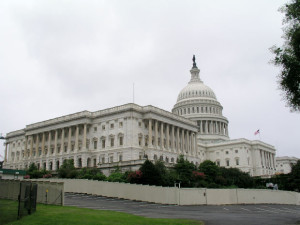An asbestos tort reform bill has gained traction in Congress with approval from the majority in the U.S. House of Representatives. Luckily for those afflicted with mesothelioma and other asbestos-related diseases, it’s unlikely to gain enough traction to become law.
Although the measure has a name that implies “fairness,” it is in actuality anything but fair for victims. The Fairness in Class Action Litigation and Furthering Asbestos Claim Transparency Act of 2016 was given the green light largely along partisan lines in January. The measure would prohibit class action litigation unless every single member of the class suffered exactly the same injury as the named plaintiff.
Additionally – and pertinent to mesothelioma victims – is that any damage settlement from an asbestos bankruptcy trust (funds set aside by companies bankrupted by asbestos litigation) would need to be made public.
A number of states – including Utah and Tennessee – have passed asbestos “anti-fraud” statutes (despite little to no evidence to support the assertion that those diagnosed with mesothelioma are committing fraud on any kind). A number of others, including Louisiana, are considering them.
With regard to the federal bill, H.R. 1927, it was voted against by all Democrats and 16 House Republicans.
It has since been received by the Senate and read twice in the Committee on Judiciary. But it’s highly unlikely to get much farther. Even if the measure were to make it in the Senate (which many speculate it will not) most believe President Barack Obama will never approve a tort reform measure.
So if it doesn’t pass this year, what about next? That will largely be dependent on how the upcoming November election goes. In order for such a measure to pass, Republicans would need control of the House, Senate and the White House.
Here’s why it matters what happens with this measure:
Although proponents say it is necessary to prevent asbestos claimants from making dubious claims against multiple bankruptcy trusts and then pursuing litigation against solvent companies.
Now let’s get real: The legislation is intended to make it more difficult for asbestos victims to compensate for injuries. As it stands at the moment, those with mesothelioma, asbestosis and other related ailments rarely receive anything close to adequate compensation. The purpose of this law – disguised as “transparency” and “fairness” – is to reduce the amount they receive by even more.
The law would require settlements that are previously confidential settlements to be made public, as well as all future settlements through asbestos trusts.
The reason this is problematic is that if the claimant sought additional damages from other companies via lawsuit, defendants in those cases would be able to present evidence of that settlement to assert they should not be deemed liable – or shouldn’t have to pay as much. But of course, it’s not uncommon in asbestos litigation for claimants to make claims against multiple defendants. Because asbestos was so prevalent throughout the 20th Century, many claimants were exposed to the toxic fibers from many different products.
Proponents say it prevents double recovery by asbestos victims. But there is absolutely no evidence that this is happening as it now stands.
If you have been diagnosed with mesothelioma or other asbestos-related disease, you will likely be making multiple claims. Trust a law firm with experience.
If you or a loved one is diagnosed with mesothelioma in Boston, call for a free and confidential appointment at (617) 777-7777.
Additional Resources:
Tort reform bill, passed by U.S. House, unlikely to become law, March 29, 2016, By Jacob Bielanski, Legal Newsline
More Blog Entries:
A Look at How Military Veterans with Mesothelioma are Treated, March 28, 2016, Mesothelioma Lawyer Boston
 Mesothelioma Lawyers Blog
Mesothelioma Lawyers Blog

